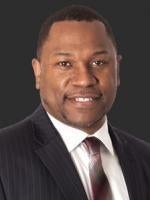Eighth Circuit
Stuart v. Glob. Tel *Link, 956 F.3d 555 (8th Cir. 2020)
Eighth Circuit affirms order decertifying nationwide class where the unifying legal theory used to support certification proved invalid.
This case involved claims for violations of the Federal Communications Act (FCA) and unjust enrichment brought by prisoners against the telephone company providing service to jails and prisons. The Eighth Circuit affirmed the district court’s decertification of a nationwide class, as well as a decision granting summary judgment for the defendant on the merits.
In affirming decertification, the panel focused on a decision by the D.C. Circuit that undercut the legal basis for plaintiffs’ class certification theory. Plaintiffs had obtained certification based on the theory that (i) the defendant was charging excessive rates and fees because those charges included a markup for the commissions it had to pay state and local correctional facilities, and (ii) those commissions were impermissible as a matter of law based on FCC regulations. But in Global Tel*Link v. FCC, 866 F.3d 397 (D.C. Cir. 2017), the court had rejected plaintiffs’ theory on commissions, and the Eighth Circuit concluded that this decision rendered plaintiffs’ “theory of class certification … untenable,” thus undercutting any basis for commonality or predominance.
The panel also concluded that, based on the D.C. Circuit’s ruling that the FCC only could limit charges for interstate, as opposed to intrastate, telephone calls, certification also was improper as to plaintiffs’ claim that deposit fees were excessive because plaintiffs had “presented no reliable mechanism” for separating interstate from intrastate calls. Finally, in affirming decertification on the unjust-enrichment claim, the panel held that defendant’s voluntary-payment doctrine defense, which bars plaintiff from recovering money she has voluntarily paid, posed a panoply of individualized questions that foreclosed predominance.
Tenth Circuit
In re EpiPen (Epinephrine Injection, USP) Marketing, Sales Practices, & Antitrust Litig., MDL No. 2785, 2020 WL 1180550 (D. Kan. Mar. 10, 2002)
Kansas district court predicts Tenth Circuit would adopt less restrictive approach to ascertainability and Article III standing in class actions.
In this case, plaintiffs filed a putative nationwide class alleging that the manufacturer and distributor of EpiPens violated state antitrust laws, RICO, and the consumer-protection statutes of over twenty states, and engaged in unjust enrichment. The court entered a lengthy decision granting in part and denying in part plaintiffs’ motion for class certification.
The court first addressed two threshold issues: ascertainability and standing. On ascertainability, the court found “no Tenth Circuit case … specifically addresses whether ascertainability is a separate requirement under Rule 23(b)(3),” and held that “the Tenth Circuit … would decline to recognize ascertainability as a separate, unstated requirement of Rule 23” as the Third Circuit and others have, but would instead “follow the Seventh Circuit’s … less restrictive ascertainability test.” On standing, the court held plaintiffs had standing to pursue their claims so long as “at least one named plaintiff resides in” each of the states under which plaintiffs had sued.
The court then addressed the Rule 23 requirements. After finding plaintiffs had satisfied each of Rule 23(a)’s requirements, it assessed whether common issues predominated under Rule 23(b)(3). The court first held that individualized damages issues did not preclude class certification because the defendants’ challenges to plaintiffs’ experts’ methodologies “don’t undermine their plausibility for establish[ing] classwide damages,” but “instead go to the weight the trier of fact should give them” in deciding whether those methodologies establish that the class sustained damage as a whole.
The court concluded that, even though certain members of the class were not injured, class certification was not precluded, because those individuals could be excluded from the class. It rejected defendants’ arguments that plaintiffs were required to prove all putative class members were injured under Article III to the Constitution, declining to follow recent decisions from the First and D.C. Circuits, instead finding that Tenth Circuit precedent holds there is no such requirement under Article III.
Finally, the court declined to certify the consumer-protection claims or the unjust-enrichment claims, finding the variances among the various states’ substantive laws defeated predominance.
D.C. Circuit
Molock v. Whole Foods Mkt. Grp., Inc., 952 F.3d 293 (D.C. Cir. 2020)
Court holds that personal jurisdiction challenges to nonresident class members should be deferred to the class certification stage; appellant’s petition for panel rehearing or rehearing en banc denied.
This putative class action involved allegations of wage and hour claims by current and former Whole Foods employees. Whole Foods moved to dismiss on several grounds, including that the district court lacked personal jurisdiction to entertain the claims of nonresident putative class members. The district court denied the motion in part and certified its order for interlocutory appeal pursuant to 28 U.S. § 1292(b). Whole Foods then filed a petition for leave to appeal, which was granted. At the heart of the appeal was the import and applicability of the Supreme Court’s decision in Bristol-Myers Squibb Co. v. Superior Court of California, 137 S. Ct. 1773 (2017), which found that nonresidents’ claims lacked an “adequate link” with California to justify the court’s exercise of specific jurisdiction.
On appeal, Whole Foods argued that because the district court is sitting in diversity, the jurisdictional analysis is akin to that of a state court (as addressed by Bristol-Myers), and that the claims asserted on behalf of nonresidents should be dismissed because the district court lacked general and specific personal jurisdiction. Plaintiffs took a different view, arguing that class actions present an exception to the general rule regarding jurisdiction, and in the alternative, that any motion to dismiss would be premature as the class had not yet been certified (such that putative class members are not yet parties to the underlying action). The D.C. Circuit declined to address the main question about how to apply Bristol-Myers, instead concluding that the issue was premature. Because the class had not yet been certified, the court concluded that a motion to dismiss would be premature. Senior Judge Silberman expressed his views in a lengthy dissent, reaching the Bristol-Myers question and stating that class allegations unrelated to Whole Foods’ contacts with the District of Columbia should not proceed.
On April 9, 2020, Whole Foods filed a petition for panel rehearing or rehearing en banc, arguing, among other things, that rehearing is appropriate because (1) the panel failed to recognize that the appropriate time to consider the question for personal jurisdiction over a named plaintiff’s representative class action claims is at the pleadings stage, and (2) the issue certified for appeal (whether Bristol-Myers applies to class actions) is of utmost importance and was not reached by the panel, meaning that the D.C. Circuit would be “the first decision endorsing the proposition that in class actions, due process rights arising from challenges to personal jurisdiction must wait until after class certification.” The D.C. Circuit denied the rehearing request on May 7, 2020.








 />i
/>i
